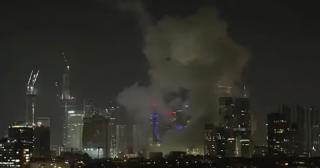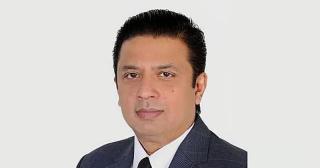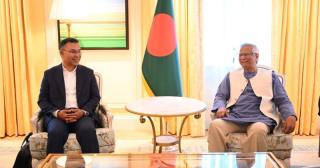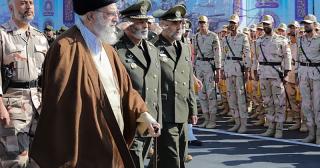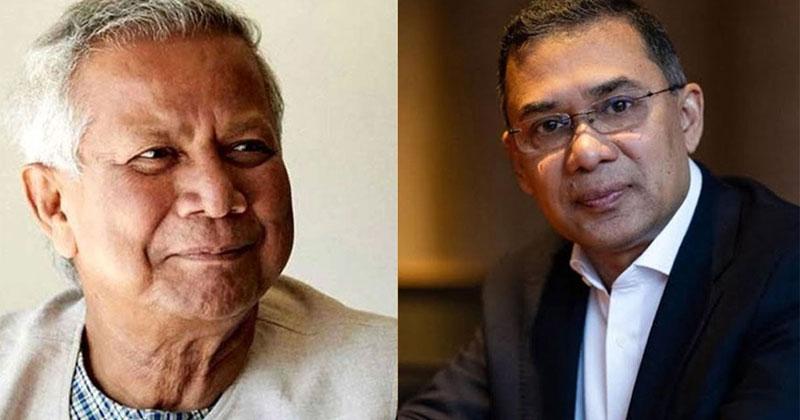
As Chief Adviser Professor Dr Muhammad Yunus and BNP Acting Chairman Tarique Rahman prepare for a formal meeting in London on Friday, a deep interest is building over the possible agenda and outcomes of the much-discussed dialogue between the two leaders.
The meeting is scheduled to take place at the Dorchester Hotel in London from 9:00am to 11:00am local time. BNP Standing Committee member Amir Khosru Mahmud Chowdhury has already arrived in London ahead of the meeting. It remains unclear, however, whether the discussion will be held one-on-one.
The high-profile meeting has already sparked significant curiosity in the country’s political arena. All eyes are now on London as many view this meeting as a potential turning point in Bangladesh’s political landscape ahead of the upcoming general election.
BNP and other political parties hope the discussions will help resolve the ongoing political crisis surrounding the election and other key national issues.
Although Chief Adviser’s Press Secretary Shafiqul Alam said the agenda would be set by the two leaders themselves, BNP senior leaders and political analysts believe several core issues are likely to be raised.
These include the election timeline, reforms, the July Charter, justice for the victims of the July–August mass uprising, a safe and orderly transition of power, ratification of decisions made by the interim government, a dignified exit strategy for the interim administration, and the potential return of Tarique Rahman to Bangladesh.
The meeting comes in the wake of Professor Yunus’ recent national address, where he announced that the 13th general election would be held in the first half of April next year. The BNP, which has persistently demanded the election be held by December this year, reacted with disappointment, terming the decision unilateral and unrealistic.
BNP leaders view this meeting as a significant step towards resolving the impasse over the election schedule, suggesting that adjusting the timeline will be a central issue in the talks.
“In the meeting, Tarique Rahman will clearly explain why April is not a suitable time for elections and why December would be more appropriate. However, if the Chief Adviser is open to considering February as a compromise, there may be room for flexibility,” said a BNP Standing Committee member, speaking on condition of anonymity.
He said Tarique Rahman may not object to an election held in January or February next year, before the start of Ramadan.
The potential return of Tarique Rahman is also likely to be addressed, possibly paving the way for his return after 17 years in exile in London.
There is a growing speculation within BNP ranks and on social media that he may return before 5 August this year. BNP Secretary General Mirza Fakhrul Islam Alamgir recently said Tarique Rahman would return “soon.”
Meanwhile, Home Affairs Adviser Md Jahangir Alam Chowdhury told journalists on Thursday that there is no legal barrier to Tarique Rahman’s return. “He is a citizen of Bangladesh and can return at any time he wishes,” he said.
Political analysts stressed that there is little room for failure in this historic meeting. They warned that unsuccessful talks could further deepen the ongoing political crisis.
In the interest of national stability, they advised against disclosing the meeting’s details—such as discussion points, disagreements, and outcomes—too early, as it could spark conspiracy theories and derail initiatives intended for public benefit.
Instead, they suggested that decisions be implemented gradually through formal processes.
Contacted, BNP Standing Committee member Salahuddin Ahmed said as this is a top-level meeting between Prof Yunus and Tarique, all major national concerns are expected to be raised, particularly the setting of a suitable date for the general election.
He said the importance of a neutral government, adherence to the rule of law, respect for court rulings, national security, and broader political considerations would also be discussed with much importance.
“Reforms may also be a discussion point. We are approaching this with a positive mindset. We hope a nationally acceptable solution or decision will emerge from this high-level meeting,” the BNP leader said.
Salahuddin suggested the meeting could ease political tensions and bridge key differences.
Responding to whether the Chief Adviser might be persuaded to bring the election date forward from April, he said, “We are hopeful that once the two leaders meet, this issue—and many others—will be resolved through constructive dialogue.”
He expressed optimism that Professor Yunus would revise the proposed schedule and agree to a more pragmatic timeline, taking into account weather conditions, Ramadan, and public examinations.
BNP Standing Committee member Dr AZM Zahid Hossain said, “The uncertainty and confusion surrounding democracy and elections in Bangladesh—the dark clouds that have formed—will begin to clear through this meeting.”
He voiced hope that the meeting would lay the groundwork for justice, urgent reforms, prompt election, and bringing back the laundered money to rebuild the country.
BNP Senior Joint Secretary General Ruhul Kabir Rizvi said the people are deeply engaged in the unfolding discussions and eagerly awaits the two leaders’ positions on reforms, the election, its timing, and any consensus reached on these critical matters.
He anticipated a positive outcome that could promote peace and stability.
The BNP leader also hoped that the meeting would help find constructive solutions to the country’s pressing political challenges.
Political analyst and University of Dhaka Professor of Political Science Dr Kazi Mohammad Mahbubur Rahman said he believes the outcome will be positive. “I expect both sides will reach an understanding through discussion,” he said.
“There is no room for failure. If the talks fail, multiple crises could emerge. But we believe that while differences are natural in talks, both sides will ultimately prioritise national interest, make concessions, and reach agreements. The entire nation is hopeful for such a resolution,” he observed.










